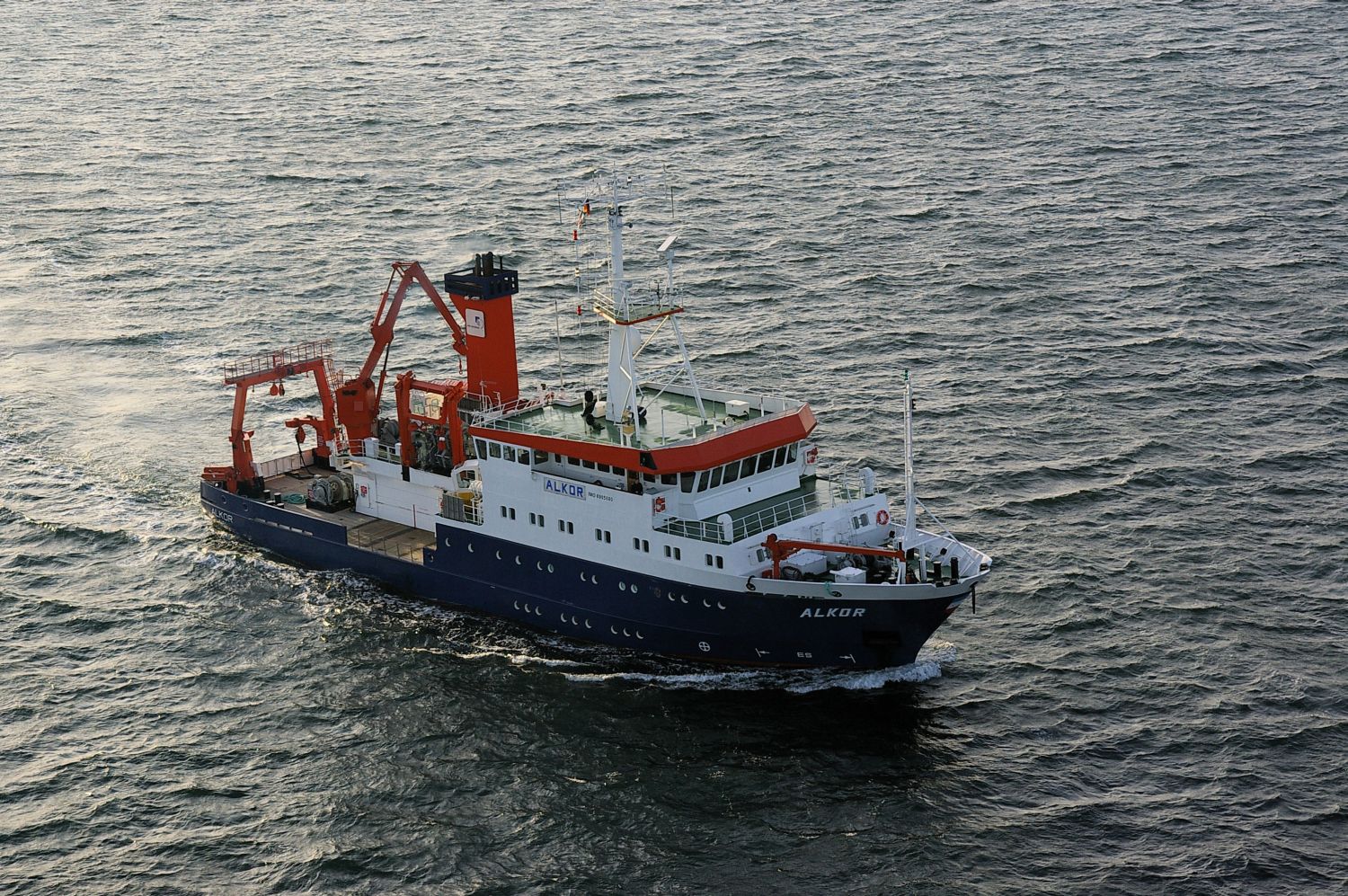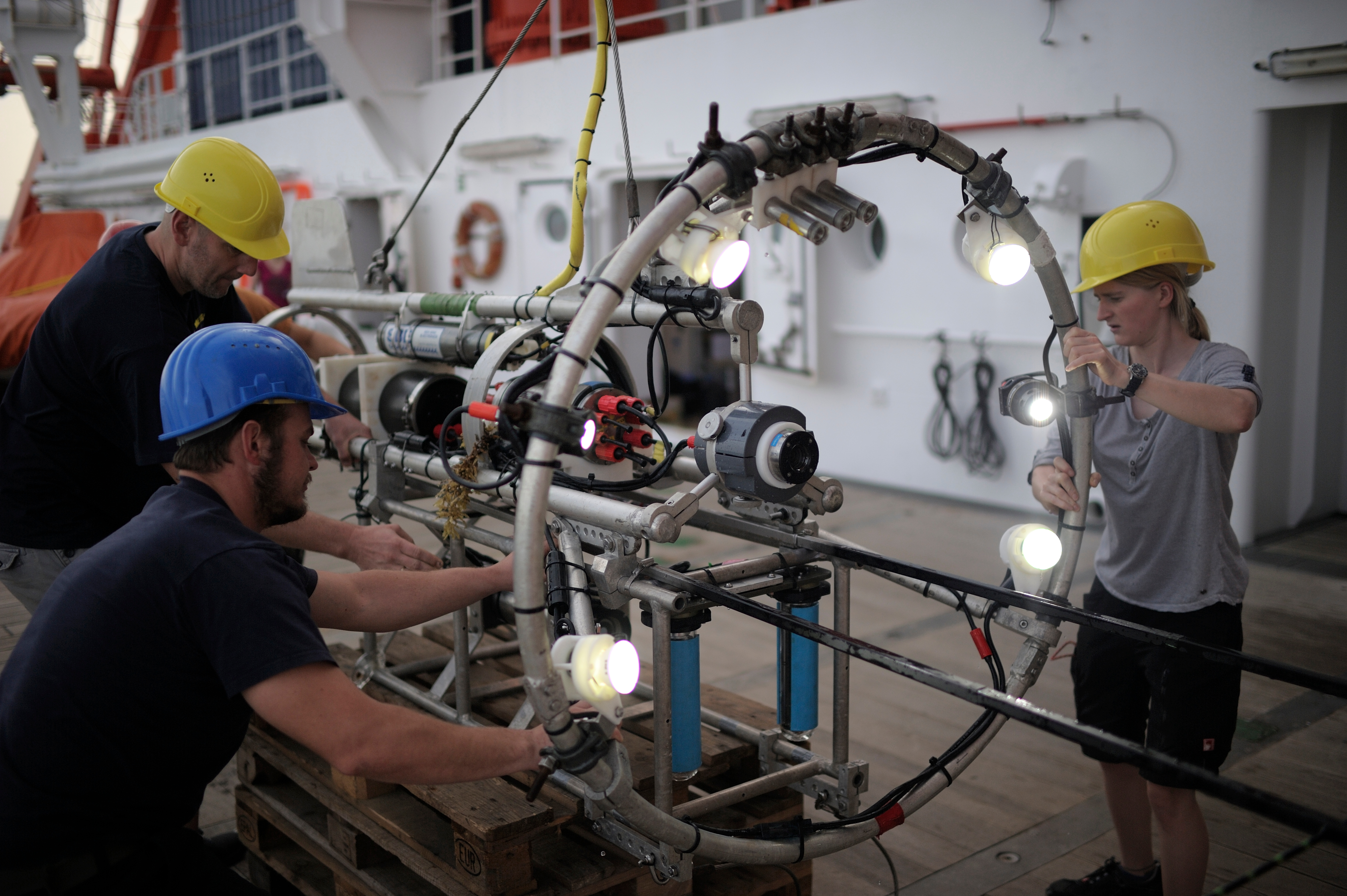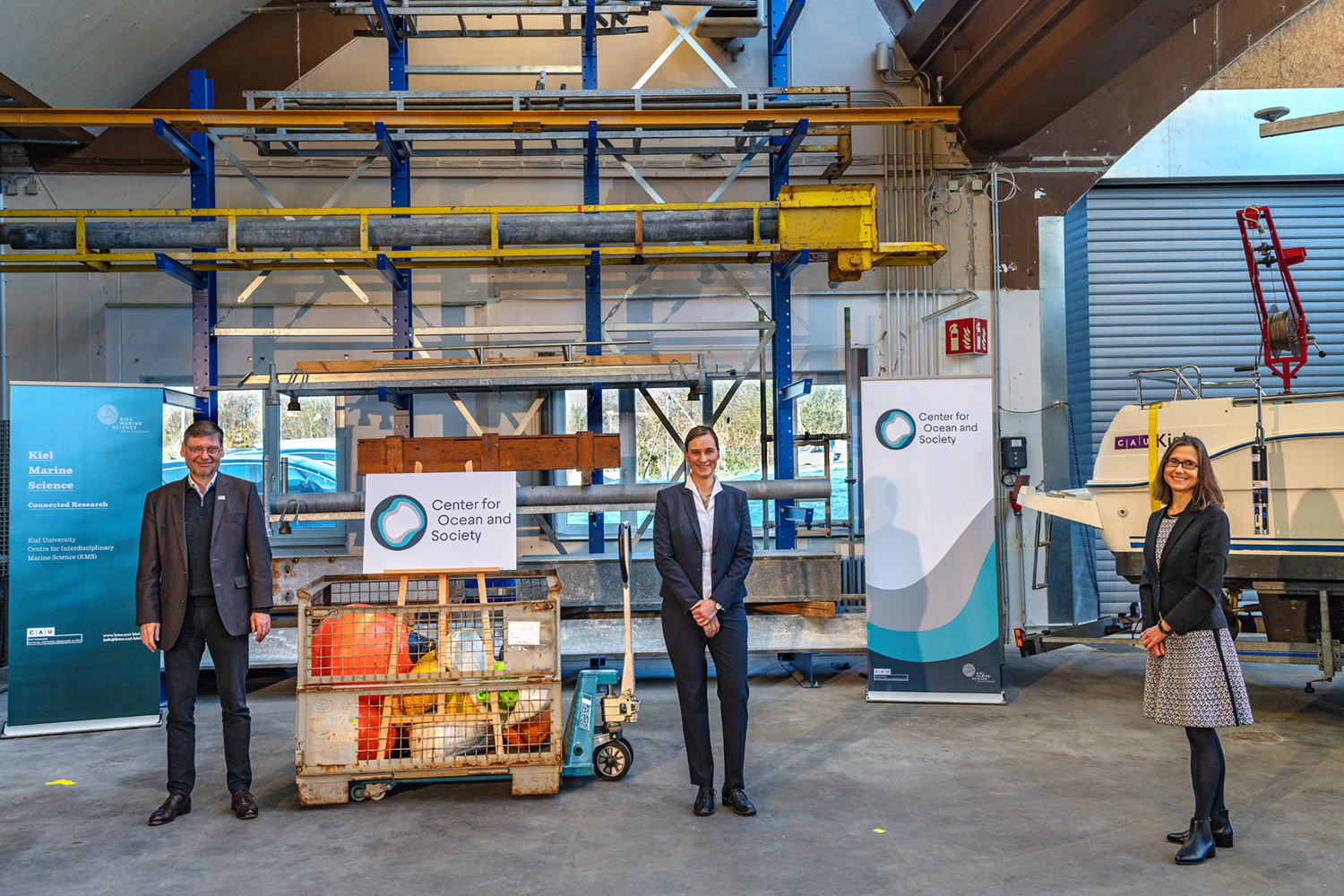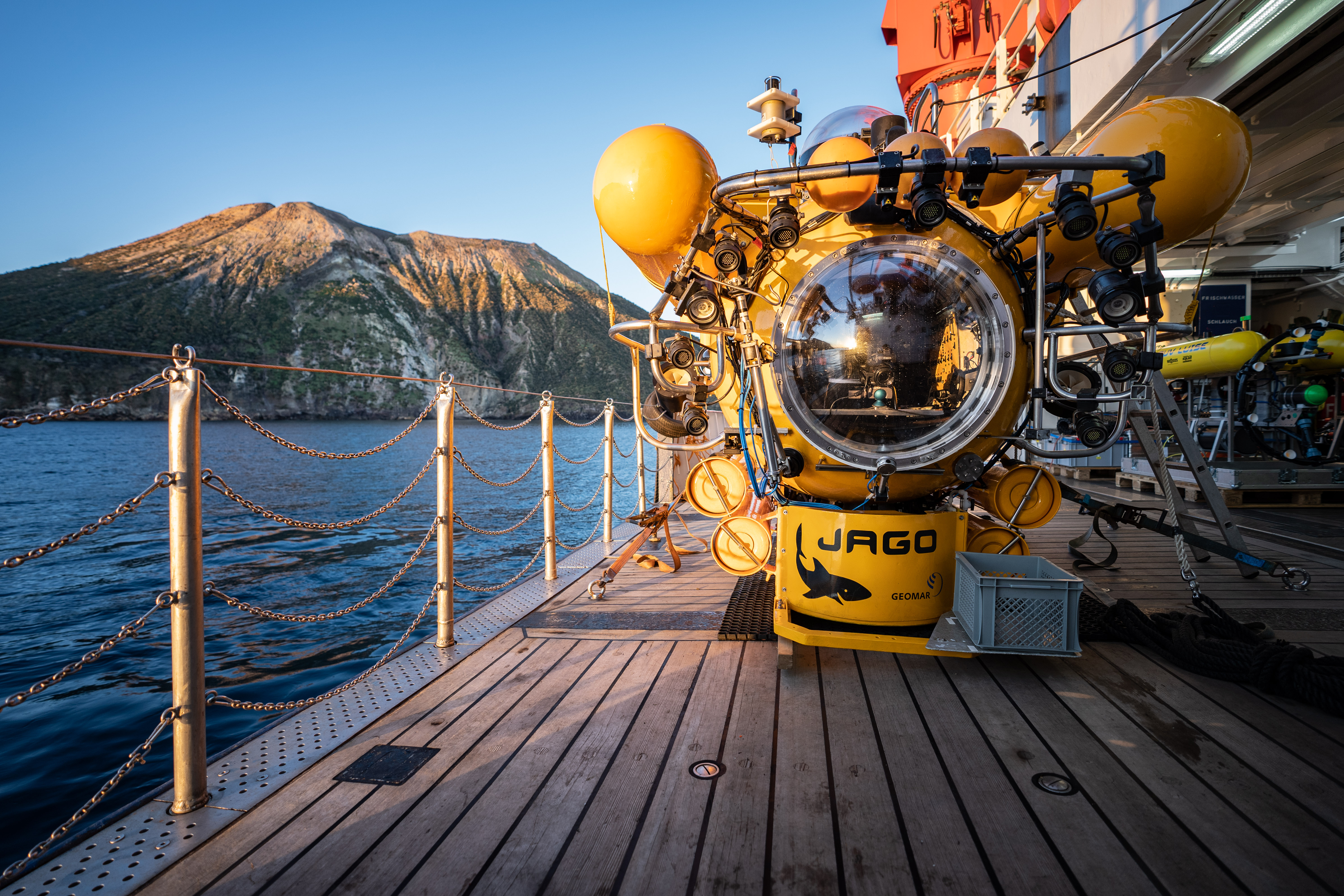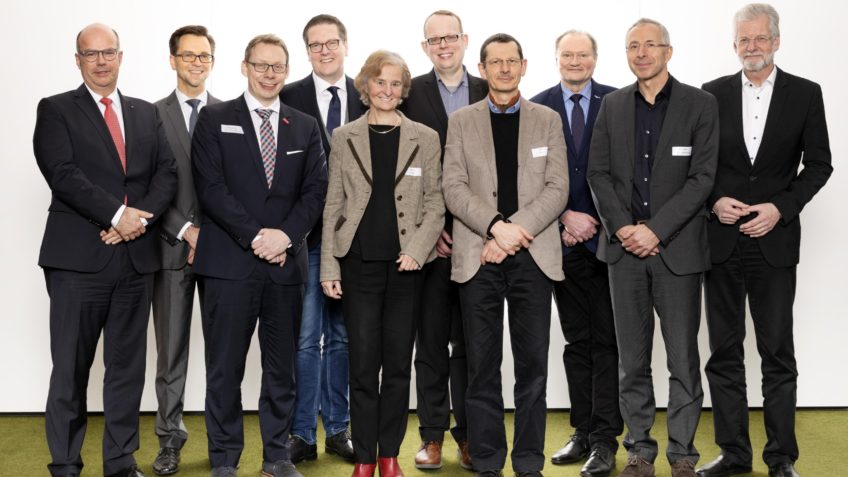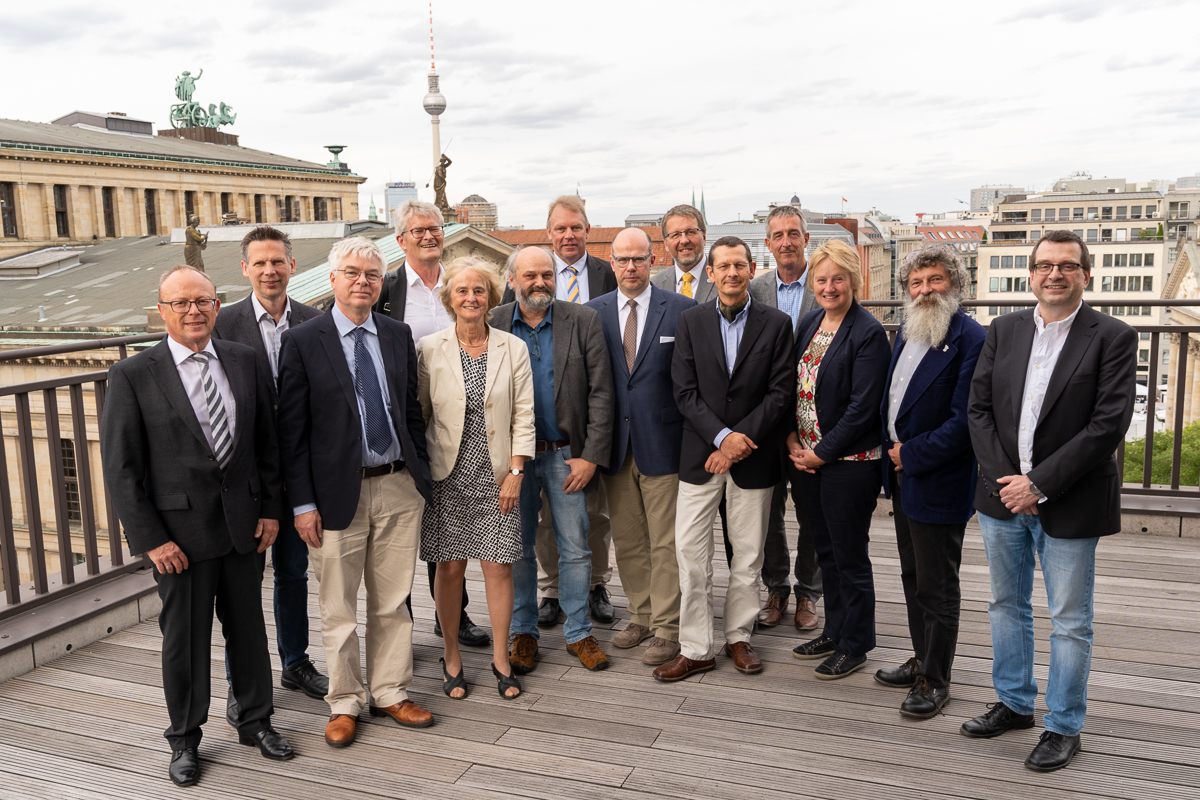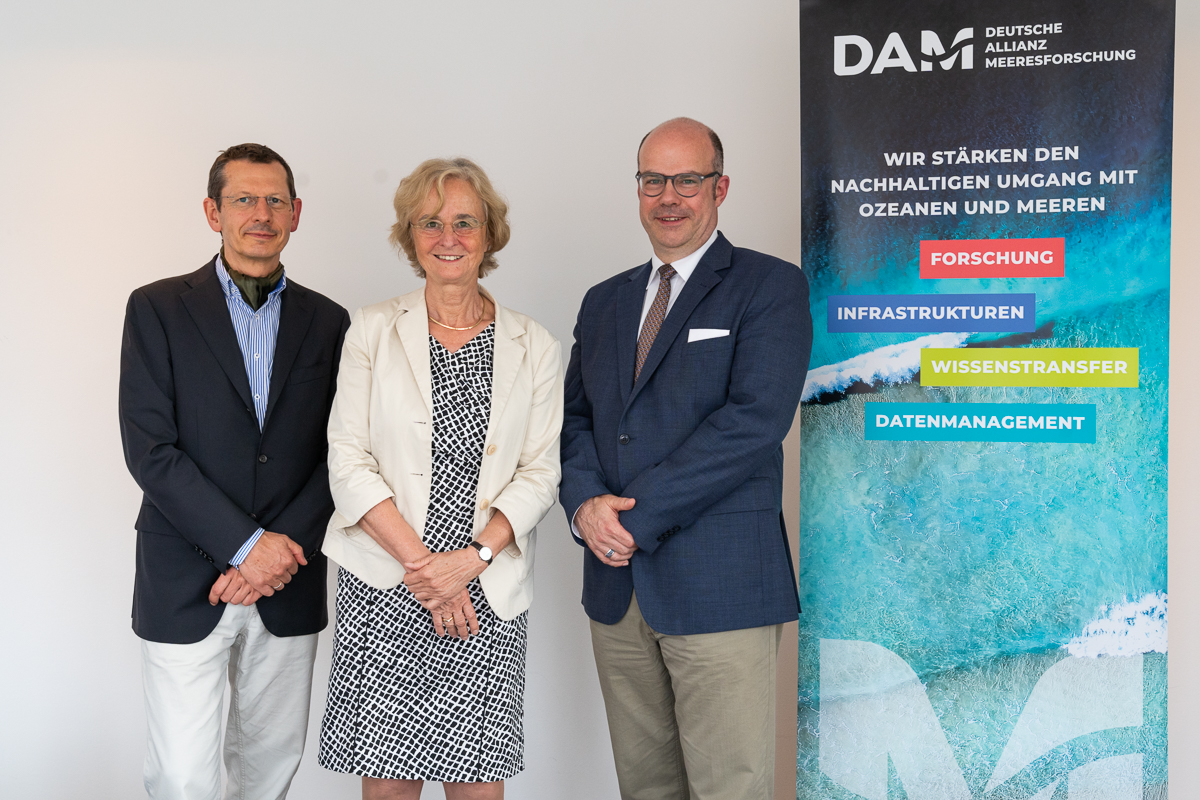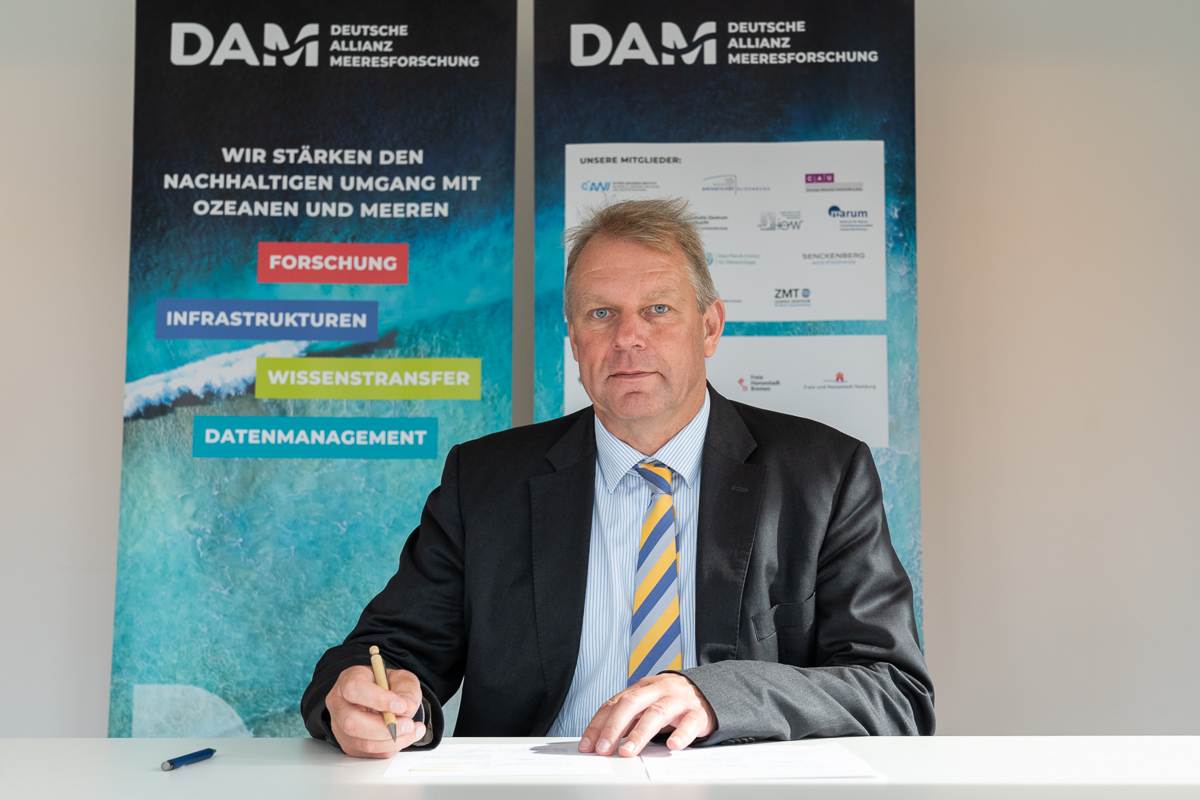Michael Schulz, Deputy Chairman of the Executive Board of the DAM, is pleased about this increase: "The DAM gives German marine research the opportunity to assume its social responsibility and to contribute towards finding answers to politically relevant scientific questions. The great reception shows that the research institutions are keen to meet this challenge."
The aim is the sustainable management of the oceans and seas
The DAM was jointly founded last July by German marine research institutions, the federal government and the northern German states of Bremen, Hamburg, Mecklenburg-Western Pomerania, Lower Saxony and Schleswig-Holstein. It aims to strengthen the sustainable use of the coasts, seas and oceans through research, data management and digitalisation, infrastructure and knowledge transfer.
A broad member base from various scientific organisations
As research museums, departmental and university research institutions, the new members are broadening the base of the DAM even further. It already brings together universities and research institutions such as Helmholtz Centres, Leibniz and Max Planck Institutes.
Forschungszentrum Küste, jointly established by Leibniz University Hannover and the Technische Universität Braunschweig, and the University of Greifswald will contribute expertise in coastal engineering and marine biotechnology to the alliance and are to become full members. The two departmental research institutes – the BGR is part of the Federal Ministry for Economic Affairs and Energy and the BSH is the supreme federal maritime authority within the Federal Ministry of Transport and Digital Infrastructure – will be associate members. As such, they can also participate in all DAM activities.
A knowledge operator in the solution and implementation space of marine research
"Involving the departmental research institutions means that we can address the concerns of the ministries particularly effectively," explains Michael Bruno Klein, Chairman of the DAM Executive Board. "The public authorities also have extensive experience in implementing a knowledge base for action. Our close cooperation will promote the DAM's solution-oriented research approach, making them a perfect match."
Using knowledge effectively through transfer
The DAM places a strong emphasis on the transfer of knowledge. For this reason, the two research museums are also very important as new associate members. "In order to achieve our goals, we want to enter into an exchange with representatives from society, politics and business," says the Chairman of the Board. "The museums are experts in presenting knowledge clearly and comprehensibly for specific target groups. But they also conduct their own research and can thus make a twofold contribution, which we are very much looking forward to and which is fundamental to the DAM."
…
Press material
Representatives of the new DAM members and DAM Executive Board, from left to right: Michael Klein (DAM), Christian Müller (BGR), Nils Goseberg (TU-Braunschweig), Torsten Schlurmann (FZK), Karin Lochte (DAM), Thomas Joppig (DSM), Michael Schulz (DAM), Harald Benke (DMM), Thomas Schweder (Uni Greifswald), Peter Herzig (DAM). Not in the picture: Karin Kammann-Klippstein (BSH).
Foto: DAM / Sinje Hasheider
DAM Executive Board and members at the founding of the association on 4 July 2019
At the foundation of the German Alliance for Marine Research (DAM) e.V. on 4 July in Berlin:
Rudolf Amann, Director of the Max Planck Institute for Marine Microbiology (MPI-MM), Oliver Zielinski, Director of the Institute for Marine Chemistry and Biology (ICBM) at the University of Oldenburg, Detlef Stammer, Director of the Centre for Earth System Research and Sustainability (CEN) at the University of Hamburg, Kay-Christian Emeis, Director of the Helmholtz-Zentrum Geesthacht - Centre for Materials and Coastal Research (HZG), Karin Lochte, DAM Board of Directors, André Freiwald, Director of Senckenberg am Meer, Lutz Kipp, President of the Christian-Albrechts-Universität zu Kiel (CAU), Michael Bruno Klein, DAM Chairman, Udo Kragl, Vice Rector of the University of Rostock, Michael Schulz, Deputy DAM Chairman and Director of MARUM - Centre for Marine Environmental Sciences at the University of Bremen, Nicolas Dittert, Commercial Director of the Leibniz Centre for Tropical Marine Research (ZMT), Karen Wiltshire, Deputy Director of the Alfred Wegener Institute Helmholtz Centre for Polar and Marine Research (AWI), Ulrich Bathmann, Director of the Leibniz Institute for Baltic Sea Research Warnemünde (IOW), and Jochem Marotzke, Director of the Max Planck Institute for Meteorology (MPI-M) (froml.t.r.).
Foto: DAM / Dirk Enters
DAM Executive Board at the founding of the association on July 4, 2019
Elected at the foundation of the association on 4 July in Berlin: The Executive Board of the German Marine Research Alliance (DAM) is made up of Michael Schulz, Deputy Chairman, Karin Lochte, Member of the Board, Michael Bruno Klein, Chairman (from left to right), and Peter Herzig, Member of the Board (not in the picture).
Foto: DAM / Dirk Enters
